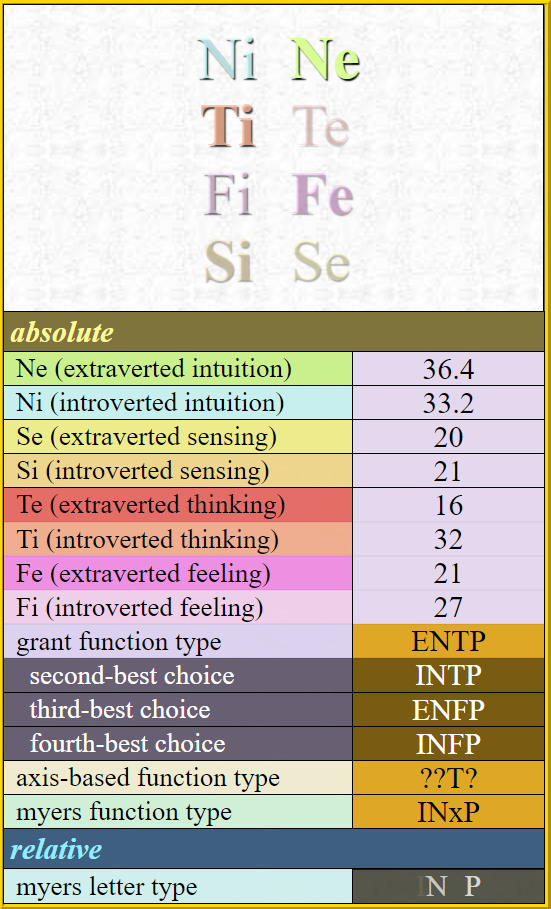
I believe that typology is fascinating, it was the gateway that lead me to discover my love for psychology. Catagorizing ourselves and forcing a bunch of labels onto ourselves is often limiting and harmful. We are abstract, and complex. However, I think it is a good starting point to learning about ourselves.
Myers-Briggs Type Indicator
MBTI (Myers-Briggs Type Indicator) is a self-report questionnaire and system created by a mother (Katharine Cook Briggs) and her daughter (Isabel Briggs Myers) to fit individuals into 16 categories, or “personalities” based on studies by Carl Jung (pronounced young).
I think it is important to note that MBTI is widely regarded as pseudoscience, meaning there is not enough evidence to back it up as a scientific method. Originally, I wanted the "study" branch of my site to only involve subjects I learned in school, but I decided to include some of my other interests/hyperfixations that I enjoy collecting information about.
There are 4 dimensions or axes in MBTI - introversion/extraversion, intuition/sensation, thinking/feeling, and judging/percieving. You may see this method being used on personality test sites such as 16personalities. This is a simplified model of Carl Jung’s theory.
Introversion:
Extraversion:
Sensing:
Intuition:
Quiz Results
25.10.24 - Sakinorva
Retook this test. I've noticed that sakinorva tends to have an intuitive bias, the scores are usually much higher and specific, with decimal endings for example. I think that in reality, my Ti would be greater than my Ne/Ni. I like how it uses different methods of typing though, and it provides different likely choices in the end.
